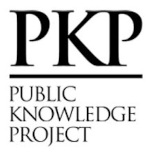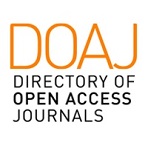Toku toa, he toa rangatira (My courage is inherited)
DOI:
https://doi.org/10.29147/dat.v6i2.402Keywords:
Courage, screens, discipline, Kaupapa Māori, IndigenousAbstract
Primarily relying on critical Kaupapa Māori analysis and comparing the existing and prospective fields of knowledge, this article considers the potential of Indigenous research as a collective of holistic research strategies. It underlines some of the challenges associated with implementing Indigenous knowledge and diverting from disciplinary norms. This is in our ideation, approach to succession planning, and the ways we conduct abstract reviewing and the formal examination of people’s work.
Downloads
References
Bell, L. Colonial Constructs: European images of the Māori 1840 – 1914. Auckland: Auckland University Press, 1992.
Blythe, M. Naming the Other: Images of the Māori in New Zealand Film and Television. Met-chuan/London: Scarecrow Press Ltd, 1994.
Cruickshank, S. G. From a Scary Black Bastard: Some Thoughts From a Post-Graduate Māori Film Student. Unpublished Master’s thesis (FTVMS), University of Auckland, Auckland, 2002.
Henry, E. Kaupapa Māori: Locating Indigenous Ontology, Epistemology and Methodology in the Academy. Keynote address at the Building the Research Capacity Within Māori Communities, Wellington, 1999.
Henry, E., & Wikaire, M. The Brown Book: Māori in Screen Production. Ngā Aho Whakaari, Māori in Screen (for download) https://ngaahowhakaari.co.nz/brown-book/, 2013.
Horrocks, R., ‘Why study media production?’, in Media Studies in Aotearoa/New Zealand, eds L. Goode and N. Zuberi Auckland: Pearson Education, 2004, (18–31).
Irwin, K. Becoming an Academic: Contradictions and Dilemmas of a Māori Feminist. In S. Mi-ddleton and A. Jones (Eds.), Women and Education in Aotearoa. Wellington: Bridget Williams Books Ltd, 1992.
Pere, R. R. Ako: Concepts and Learning in the Māori Tradition. Working Papers, Department of Sociology(17), 1982.
Pihama, L. Tīhei Mauri Ora: Honouring our voices: Mana Wahine as a kaupapa Māori theoretical framework. PhD Education, University of Auckland, Auckland, 2001.
Smith, G. H. Tanenuiarangi’s Legacy, Propping Up the Sky: Kaupapa Māori as Resistance and Intervention. Auckland: Research Unit for Māori Education, 1992.
Smith, G. H. Kaupapa Māori Theory in the University Setting. Paper presented at the University Teachers Conference (Te Matawhanui), Massey University, Palmerston North, 1995.
Smith, G. H. Developing Structural Change in the Academy for Indigenous Knowledge. Paper presented at the Keynote address to Aboriginal Seminar, Woollongong University, 1996.
Smith, G. H. The Development of Kaupapa Māori: Theory and Praxis. Doctorate of Philosophy, University of Auckland, Auckland, 1997.
Smith, L. T. Kaupapa Māori Health Research. Wellington: Te Ropu Rangahau Hauora a Eru Pomare, 1996.
Smith, L. T. Decolonizing Methodologies: Research and Indigenous Peoples. Zed Books Ltd/Otago University Press: London /Dunedin, 2006.
Te Awekotuku, N. Māori Women and Research: Researching Ourselves (Keynote Address). Paper presented at the Māori and Psychology: Research and Practice Hamilton, 1999.
Wilson, J. K. T. The Cinematic Economy of Cliff Curtis. Unpublished Master’s thesis (FTVMS), University of Auckland: Auckland, 2006.
Wilson, J. K. T. Whiripapa: Tāniko, Whānau and Kōrero-based Film Analysis. Unpublished Doctoral thesis (FTVMS), University of Auckland: Auckland, 2013.
Wilson, J. K. T. Exploring Tikanga and Kawa as tools of film analysis: Kerosene
Creek, Screen Conference, University of Glasgow, Scotland, 28th June – 1 July, 2018.
Wilson, J. K. T. Kapa Haka for Screen: The ongoing evolution of screened Kapa Haka, Screen Conference, University of Glasgow, Scotland, 28th June – 30th June, 2019.
Wilson, J. K. T. “Wairaka: Challenging the status quo” in J. Ruru, L. W. Nikora and R. Calman (Eds), Valuing mātauranga Māori at the Interface. Ngā Pae o te Māramatanga/University of Otago Press: Dunedin, 2021.


























